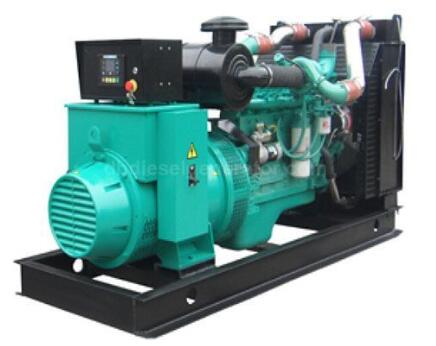Diesel generator sets serve as reliable sources of backup power in various applications, from industrial facilities to residential properties. Understanding the efficiency of these generator sets is crucial for assessing their performance and determining their suitability for specific needs. In this article, we explore the factors influencing the efficiency of diesel generator sets and how it impacts their operation.
Understanding Diesel Generator Efficiency
Efficiency refers to the ratio of useful output energy to the input energy required to operate a system. In the case of diesel generator sets, efficiency is a measure of how effectively the fuel's energy is converted into electrical power. It is typically expressed as a percentage and can vary depending on factors such as generator design, engine technology, load conditions, and maintenance practices.
Factors Influencing Efficiency
Several factors influence the efficiency of a diesel generator set:
Engine Design and Technology: Modern diesel engines are designed to optimize combustion efficiency, reduce emissions, and enhance overall performance. Advanced technologies such as turbocharging, electronic fuel injection, and variable valve timing contribute to improved fuel efficiency and power output.
Generator Size and Capacity: The size and capacity of the generator relative to the load demand play a significant role in efficiency. Operating a diesel generator set at a higher load capacity closer to its rated output typically results in better efficiency compared to running it at a lower load, where fuel consumption may be less efficient.
Fuel Quality and Composition: The quality and composition of the diesel fuel used can affect combustion efficiency and overall performance. High-quality, clean-burning diesel fuel with optimal cetane ratings and low sulfur content promotes efficient combustion and reduces emissions.
Maintenance and Service: Regular maintenance and servicing are essential for ensuring optimal performance and efficiency of diesel generator sets. Proper lubrication, filter replacement, and engine tuning help maintain peak efficiency and prevent mechanical issues that can affect performance.
Measuring Efficiency
Diesel generator efficiency is typically measured in terms of fuel consumption rate and electrical output. Specific fuel consumption (SFC) is a common metric used to quantify the amount of fuel consumed per unit of electrical output, usually expressed in liters or gallons per kilowatt-hour (kWh) of electricity generated. The lower the SFC value, the higher the efficiency of the generator set.
Importance of Efficiency
Efficiency is a critical consideration when selecting and operating diesel generator sets for various applications:
Cost Savings: Higher efficiency diesel generator sets consume less fuel per unit of electrical output, resulting in lower operating costs over time. This is particularly important for applications with high energy demand or continuous operation where fuel expenses can be significant.
Environmental Impact: Improving the efficiency of diesel generator sets helps reduce fuel consumption and greenhouse gas emissions, contributing to environmental sustainability and compliance with emissions regulations.
Reliability and Performance: Efficient diesel generator sets are more reliable and provide consistent power output, ensuring uninterrupted operation during power outages or grid instability. This reliability is essential for critical applications such as hospitals, data centers, and industrial processes.
Conclusion
In conclusion, the efficiency of a diesel generator set is a key determinant of its performance, operating costs, and environmental impact. By understanding the factors influencing efficiency and implementing measures to optimize performance, users can maximize the benefits of diesel generator sets for backup power generation and other applications.
For more information on diesel generator sets or to discuss your power generation needs, please don't hesitate to contact us. As a trusted supplier of generator technology and services, we are committed to providing reliable and efficient solutions to meet your requirements.

Comments
Post a Comment